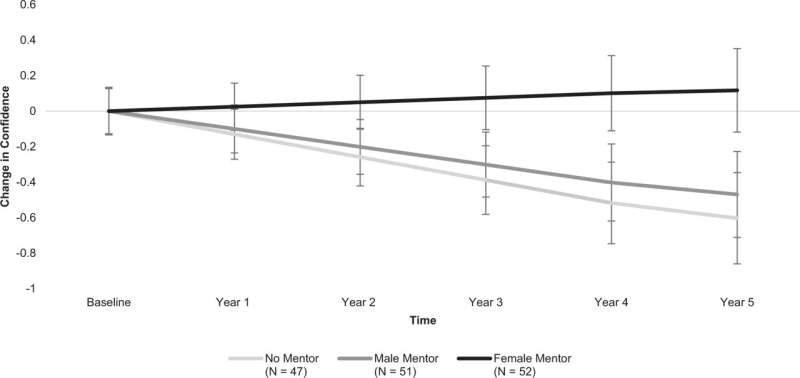The secret to STEM diversity may lie in peer mentorship

Researchers at the University of Massachusetts Amherst recently published a paper in Nature Communications showing that when first-year female STEM students are mentored by student peers, the positive ripple effect lasts throughout their undergraduate years and into their postgraduate lives, enhancing the mentee's subjective experience as well as objective academic outcomes.
"We often think of student success as something internal to some individuals—their innate drive, grit or brilliance," says Nilanjana Dasgupta, the paper's senior author, professor of psychological and brain sciences and director of the Institute of Diversity Sciences (IDS) at UMass Amherst.
"But our work shows that before success comes connection between the student and others in her peer community. From high-quality peer relationships within the academic environment, especially relationships with peers who share a common identity, comes the confidence and motivation to persist, which lasts for a very long time, powering that student through her academic and early professional career."
Dasgupta and her co-authors spent eight years, from 2011 to 2019, monitoring a total of 150 female students who majored in engineering at UMass Amherst. The team focused on engineering, because, as a discipline, it has a well-documented, lopsided lack of gender diversity, even compared to other STEM fields: only 21% of engineering majors are women, and they account for less than 13% of the engineering workforce.
Dasgupta and her colleagues then recruited 58 student-mentors who likewise were majoring in engineering—typically juniors or seniors. Just over half of the mentors—32—were women, and 26 were men. All received training in effective mentorship.
The mentee-mentor pairs met an average of four times throughout each mentee's first year, and, as Dasgupta detailed in previous research published in Proceedings of the National Academy of Sciences in 2017, the results were immediate and striking: female mentees with female mentors reported a much greater sense of belonging, motivation and confidence after the end of their first year.
"In this new paper, we found that first-year mentoring helped maintain female engineering students' confidence in their skills, which drove the mentees to success later on in their college years," says Deborah Wu, the paper's lead author, who completed the research as part of her graduate work at UMass Amherst, and is currently a postdoctoral researcher in psychology at Northwestern University.
Female students with female mentors not only showed more confidence, they also exhibited greater motivation, successfully secured professional internships and were more likely to complete an undergraduate degree in a STEM field compared to either female students with male mentors or female students with no mentors.
More information: Deborah J. Wu et al, Female peer mentors early in college have lasting positive impacts on female engineering students that persist beyond graduation, Nature Communications (2022). DOI: 10.1038/s41467-022-34508-x
Tara C. Dennehy et al, Female peer mentors early in college increase women's positive academic experiences and retention in engineering, Proceedings of the National Academy of Sciences (2017). DOI: 10.1073/pnas.1613117114
Journal information: Proceedings of the National Academy of Sciences , Nature Communications
Provided by University of Massachusetts Amherst





















